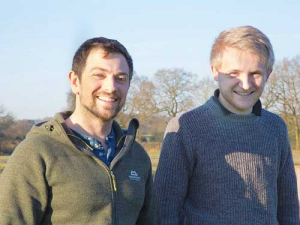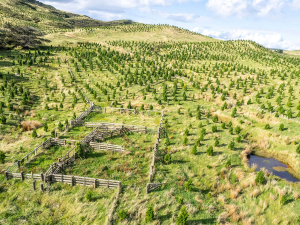Three engineers plan to grow 1ha of spring barley without setting foot on the paddock: every stage – cultivation, drilling, crop husbandry and harvest – will be autonomous.
While there is obviously a degree of proving they can do it, they also believe advances in mechanisation for 25 years have resulted in larger, more productive equipment.
The flip side is less labour availability and degraded soil health caused by compaction.This could be addressed by using smaller, lighter machines. With this premise in mind, the project is centred on a compact Iseki tractor configured to work unmanned with help from the university’s technology partner, Precision Decisions.
With the crop scheduled for drilling this month, a lot of time has been given to finding machinery conforming to key criteria – row spacing, field shape, suitability for adaptation to autonomous control and, of course, availability.
The drill chosen was initially intended for vineyard use where it planted green manures between the rows of grapevines, but importantly uses coulters and a seeding mechanism used in conventional agriculture. Likewise, the sprayer unit has been sourced with traditional practices in mind, a conventional layout and a generic spray controller.
In practice, the sprayer will look after itself during the spraying, as will the tractor when it traverses the hectare.
Post-emergence spraying and fertiliser applications are scheduled for April to Jul, and harvest in August or September.
Much focus has been placed on developing safety systems. Due to the autonomous operation, laser scanners will sense objects or people that stray into the unit’s path and bring everything to a stop.
And the project is popular, so the engineering department will fix a camera to the rig for live-streaming important events in the field.









